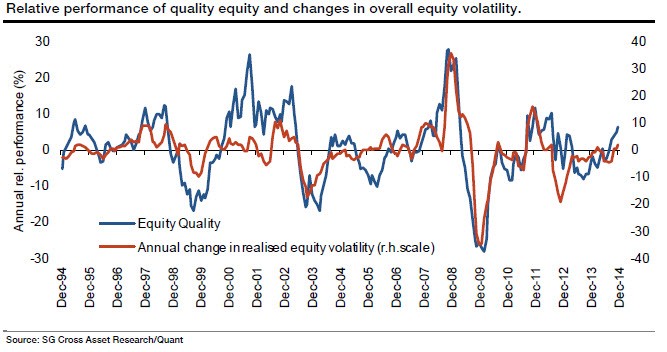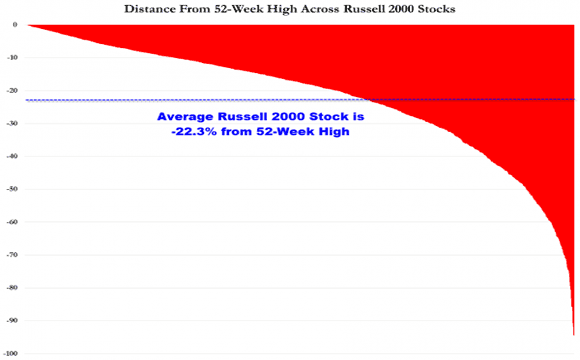Smart Money Unloads Sits on Cash Waits for Stocks to Swoon
Post on: 7 Июль, 2015 No Comment

by Wolf Richter September 10, 2014
Mergers and Acquisitions activity in the US jumped 60% this year over the same period last year, according to a Goldman Sachs report. But LBOs?
After years of a relentless run-up in stock prices, corporations are busy gobbling up overvalued companies with their own overvalued shares of which they can print an unlimited amount, and with debt that is nearly free after inflation, and/or with the cash on their balance sheets rather than investing it in plant, equipment, and personnel.
The higher the price, the better. Bidding up each other’s stocks collectively has been one of the powerful drivers behind the soaring stock market, which has encouraged even more acquisitions, and everyone on Wall Street knows this, so they push M&A activity relentlessly. And then there are the big fat fees extracted from every deal.
Companies have other reasons. Acquisitions add to their revenues when organic revenue growth has stalled or turned negative. They’re a way of getting rid of a pesky competitor and clear the way for an oligopoly that has more pricing and lobbying power. And best of all, acquisition accounting allows acquirers to lump all sorts of expenses paid for with real dollars and real shares, both of which come out of the stockholders pocket, into a “non-cash” acquisition-related charge that analysts and investors have been well-trained over the years to ignore. Expense problem solved.
And so corporate M&A activity has soared this year. But according to a Goldman Sachs report cited by the Wall Street Journal. the number of LBOs has collapsed.
A typical LBO involves one or more private equity firms, in association perhaps with some lenders, who take a publically traded company private. In the process, they leverage up the acquired company with a mountain of debt. For instant gratification, PE firms then often draw cash out of the acquired company via a special dividend.
But not this year.
PE firms are awash in cash: $465 billion “recently,” up nearly 20% from the same period last year, according to the report. PE firms are the ultimate smart money; instead of buying companies and doing new LBOs, they’ve been dumping their prior LBOs, either by selling them to the public as IPOs or by selling them to large corporations that can print an unlimited amount of their overvalued shares to buy an overvalued company from a smart PE firm. You get the idea who is going to pay for this.
This year, public-to-private LBO volume plunged to $3 billion, the lowest level since crisis year 2009, when deal volume dropped to zero.

Last year, there were still $80 billion in public-to-private LBOs, including four deals of over $5 billion each: H.J. Heinz, Dell, BMC Software, and Neiman Marcus. Between 2004 and 2013, the average was $75 billion in these deals per year. The record? LBO bubble year 2007, just before the house of cards came crashing down: $275 billion in deals.
This included the most gigantic LBO of them all, the buyout of TXU, the largest electric utility in Texas, which was acquired in a $47 billion masterpiece of Wall-Street engineering by KKR, TPG Capital, and Goldman Sachs. The smart money piled $40 billion in debt on the utility. Now, Energy Future Holdings, as it has been renamed, is trying to sort out its future in bankruptcy.
While PE firms are ferretting out opportunities overseas, there’s no appetite for public-to-private LBOs in the US this year – despite the near record amounts of cash PE firms are wallowing in. But there’s a reason.
Unlike corporations that can just print more of their overvalued shares to buy already overvalued companies at a big premium, PE firms are turned off by the current valuations. Their business model gets very tough if they overpay by ridiculous proportions for their acquisitions. And so the smart money is more interested in selling its current holdings into this wondrous stock market, rather than buying at these levels.
And when will PE firms, the ultimate smart money, become buyers again? Goldman gives it a good guess: they will likely wait until after the stock market has come down from its lofty heights. And this could be by a lot, because that’s what it would take to make the equation work. Until then, the ultimate smart money will just keep its powder dry.
These ebullient markets are in no mood to listen to the Feds rate-hike cacophony, the San Francisco Fed found. And it frets that the disconnect could cause financial instability. Read. To Avert Sudden Market Collapse, the Fed Tries to Spook Utterly Unspookable Markets














